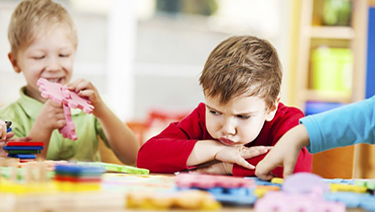
Behavioral Problems :
All kids misbehave some times. And some may have temporary behavior problems due to stress. For example, the birth of a sibling, a divorce, or a death in the family may cause a child to act out. Behavior disorders are more serious. They involve a pattern of hostile, aggressive, or disruptive behaviors for more than 6 months. The behavior is also not appropriate for the child’s age.
- If you see signs of a problem, ask for help. Poor choices can become habits. Kids who have behavior problems are at higher risk for school failure, mental health problems, and even suicide. Classes or family therapy may help parents learn to set and enforce limits. Talk therapy and behavior therapy for your child can also help.
When children’s behaviour is complex and challenging, some parents find reasons not to respond. For instance, parents often rationalize (“It’s not my fault”), despair (“Why me?”), wish it would go away (“Kids outgrow these problems anyway”), deny (“There’s really no problem”), hesitate to take action (“It may hurt his feelings”), avoid (“I didn’t want to face his anger”) or fear rejection (“He won’t love me”)
If you are worried about your child’s behavior or development, or if you are uncertain as to how one affects the other, consult your pediatrician or developmental/behavioral pediatrician as early as possible, even if just to be reassured that your child’s behavior and development are within a normal range.
Some of the more well-known childhood behavioral problems are :
- Autism spectrum disorder ( ASD)
- Attention Deficit Hyperactivity Disorder (ADHD
- Oppositional Defiant Disorder (ODD)
- Anxiety
- Childhood depression
- Bipolar disorders.
Many times more than one of the above clinical disorders is that your young child is experiencing a temporary behavioral and/or emotional problem. Many of these pass with time, and require a parent’s patience and understanding. Although sometimes if there is a genuine behavioral problem as above it must be identified early and diagnosed with an appropriate test so that comprehensive therapy can be started to help the child and families
